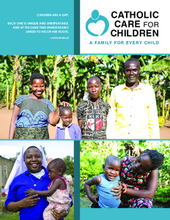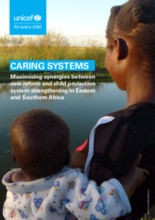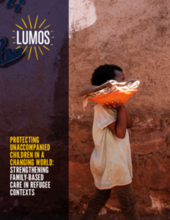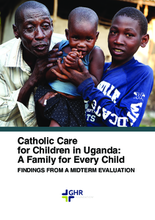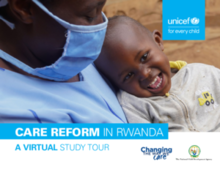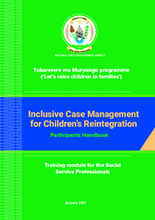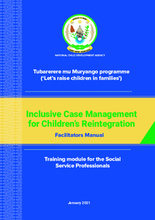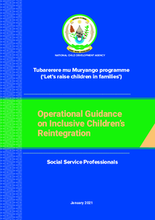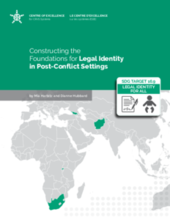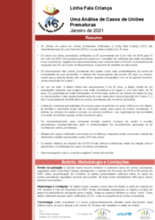Displaying 331 - 340 of 1607
Catholic Care for Children (CCC) is a visionary initiative, led by Catholic sisters, to see children growing up in safe, nurturing families. Guided by the biblical mandate to care for the most vulnerable and animated by the principles of Catholic Social Teaching—especially the dignity of each person—CCC teams are reducing the need for institutional care by encouraging and facilitating family- and community-based care for children.
This paper promotes a system strengthening approach to care reform. It begins with an explanation of child protection and care and the relationship between these two concepts. It goes on to explain why system strengthening is needed to improve children’s care, and how care reform can be carried out systematically, using a range of examples from across the Eastern and Southern Africa region. The paper is aimed at UNICEF country office staff, government and others working on children’s care and protection in the region.
Lumos worked together with partners on the family-based care for unaccompanied children project between 2018 and 2020, in four camps in the Tigray region of Ethiopia. This evaluation report considers the various components of the project and provides recommendations to child protection and refugee response practitioners, with the aim of improving the quality of child protection programming and its impact on unaccompanied children in refugee contexts.
The goals of Catholic Care for Children in Uganda (CCCU) are to enable children to grow up in safe environments, reduce recourse to institutional care, and encourage family- and community-based care for children. This midterm evaluation examines what has been accomplished in the four years since the program began.
This virtual study tour aims to provide you with a strong understanding of care reform in Rwanda
from the comfort of your own home.
This participant’s handbook relates to Module 3 of the Government of Rwanda’s Tubarerere Mu Muryango (TMM) training programme. It is for Child Protection and Welfare Officers who work directly with children and families on reintegration of children, including children with disabilities from residential institutions.
This training package is primarily for Government of Rwanda’s Child Protection and Welfare Officers who work directly with children and families on reintegration of children (including children with disabilities) from residential institutions.
This operational guidance describes how the Government of Rwanda conducts case management for reintegration of children from residential institutions to family-based care, including children with disabilities.
This paper aims to contribute to the achievement of Target 16.9 under Sustainable Development Goal 16 by analyzing the role of the civil register and the legal underpinnings for identity in four countries: Afghanistan, Georgia, Rwanda, and South Africa. It describes institutional and operational models in each country that support universal registration of births, deaths, and other vital events.
Âmbito de aplicação: O âmbito deste resumo temático é examinar casos de uniões prematuras registados pela Linha Fala Criança, abrangendo o período de Fevereiro de 2018 a Novembro de 2020.

